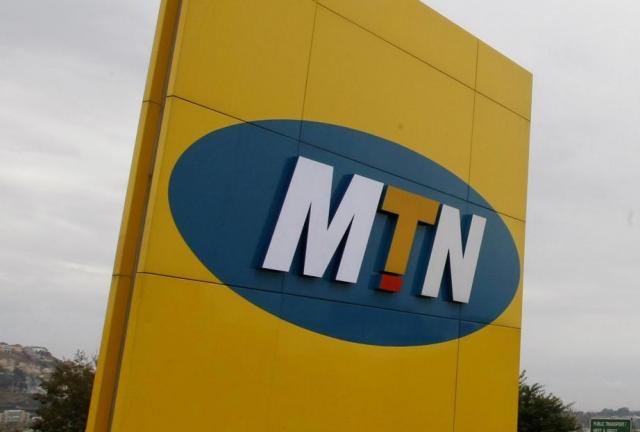Africa’s largest telecoms company, MTN is doubling down on its Nigeria operations despite a history of billion-dollar fines.
The company will apply for a mobile banking license in Nigeria and plans a launch of its mobile money service in Africa’s largest economy in the second quarter of next year, its CEO said at a trade show in Cape Town on Tuesday (Nov.13).
MTN’s mobile money plans will go on despite its latest scrap with Nigerian authorities who claim it “illegally repatriated” $8.1 billion in profits and possibly owes $2 billion in taxes.
Those claims follow a $1.7 billion settlement only two years ago after a protracted SIM card dispute. (Nigeria had initially slapped MTN with a $5.2 billion fine.) Indeed, the recent allegations have resulted in MTN slowing down on plans to launch an initial public offering (IPO) in Nigeria.
But despite its fractious relationship with local regulators, Nigeria—MTN’s largest market—remains a major mobile money opportunity given the size of its unbanked population.
MTN will be betting on its significant market share to convert customers to its mobile money service when launched especially as the local market still remains without a dominant player in the mold of Safaricom’s M-Pesa in Kenya. MTN has already recorded success in neighboring Ghana, where it successfully launched an IPO mainly through its mobile money service.
It’s unlikely that MTN will be the only telecoms operator applying for the license in Nigeria however. Backed with $1.25 billion in new funding, Airtel Africa recently announced plans to “achieve rapid growth” with Airtel Money, its mobile money service, across the continent.
With traditional voice and messaging revenues plateauing, telecoms operators across the continent are increasingly getting into new sectors and, given low financial inclusion rates across the continent, mobile money is largely viewed as a key revenue growth driver for mobile operators. Last year, MTN generated around a quarter (pdf, page 78) of its overall average revenue per user across 14 countries from mobile money services.
Africa’s largest telecoms company, MTN is doubling down on its Nigeria operations despite a history of billion-dollar fines.
The company will apply for a mobile banking license in Nigeria and plans a launch of its mobile money service in Africa’s largest economy in the second quarter of next year, its CEO said at a trade show in Cape Town on Tuesday (Nov.13).
MTN’s mobile money plans will go on despite its latest scrap with Nigerian authorities who claim it “illegally repatriated” $8.1 billion in profits and possibly owes $2 billion in taxes.
Those claims follow a $1.7 billion settlement only two years ago after a protracted SIM card dispute. (Nigeria had initially slapped MTN with a $5.2 billion fine.) Indeed, the recent allegations have resulted in MTN slowing down on plans to launch an initial public offering (IPO) in Nigeria.
But despite its fractious relationship with local regulators, Nigeria—MTN’s largest market—remains a major mobile money opportunity given the size of its unbanked population.
MTN will be betting on its significant market share to convert customers to its mobile money service when launched especially as the local market still remains without a dominant player in the mold of Safaricom’s M-Pesa in Kenya. MTN has already recorded success in neighboring Ghana, where it successfully launched an IPO mainly through its mobile money service.
It’s unlikely that MTN will be the only telecoms operator applying for the license in Nigeria however. Backed with $1.25 billion in new funding, Airtel Africa recently announced plans to “achieve rapid growth” with Airtel Money, its mobile money service, across the continent.
With traditional voice and messaging revenues plateauing, telecoms operators across the continent are increasingly getting into new sectors and, given low financial inclusion rates across the continent, mobile money is largely viewed as a key revenue growth driver for mobile operators. Last year, MTN generated around a quarter (pdf, page 78) of its overall average revenue per user across 14 countries from mobile money services.
Africa’s largest telecoms company, MTN is doubling down on its Nigeria operations despite a history of billion-dollar fines.
The company will apply for a mobile banking license in Nigeria and plans a launch of its mobile money service in Africa’s largest economy in the second quarter of next year, its CEO said at a trade show in Cape Town on Tuesday (Nov.13).
MTN’s mobile money plans will go on despite its latest scrap with Nigerian authorities who claim it “illegally repatriated” $8.1 billion in profits and possibly owes $2 billion in taxes.
Those claims follow a $1.7 billion settlement only two years ago after a protracted SIM card dispute. (Nigeria had initially slapped MTN with a $5.2 billion fine.) Indeed, the recent allegations have resulted in MTN slowing down on plans to launch an initial public offering (IPO) in Nigeria.
But despite its fractious relationship with local regulators, Nigeria—MTN’s largest market—remains a major mobile money opportunity given the size of its unbanked population.
MTN will be betting on its significant market share to convert customers to its mobile money service when launched especially as the local market still remains without a dominant player in the mold of Safaricom’s M-Pesa in Kenya. MTN has already recorded success in neighboring Ghana, where it successfully launched an IPO mainly through its mobile money service.
It’s unlikely that MTN will be the only telecoms operator applying for the license in Nigeria however. Backed with $1.25 billion in new funding, Airtel Africa recently announced plans to “achieve rapid growth” with Airtel Money, its mobile money service, across the continent.
With traditional voice and messaging revenues plateauing, telecoms operators across the continent are increasingly getting into new sectors and, given low financial inclusion rates across the continent, mobile money is largely viewed as a key revenue growth driver for mobile operators. Last year, MTN generated around a quarter (pdf, page 78) of its overall average revenue per user across 14 countries from mobile money services.
Africa’s largest telecoms company, MTN is doubling down on its Nigeria operations despite a history of billion-dollar fines.
The company will apply for a mobile banking license in Nigeria and plans a launch of its mobile money service in Africa’s largest economy in the second quarter of next year, its CEO said at a trade show in Cape Town on Tuesday (Nov.13).
MTN’s mobile money plans will go on despite its latest scrap with Nigerian authorities who claim it “illegally repatriated” $8.1 billion in profits and possibly owes $2 billion in taxes.
Those claims follow a $1.7 billion settlement only two years ago after a protracted SIM card dispute. (Nigeria had initially slapped MTN with a $5.2 billion fine.) Indeed, the recent allegations have resulted in MTN slowing down on plans to launch an initial public offering (IPO) in Nigeria.
But despite its fractious relationship with local regulators, Nigeria—MTN’s largest market—remains a major mobile money opportunity given the size of its unbanked population.
MTN will be betting on its significant market share to convert customers to its mobile money service when launched especially as the local market still remains without a dominant player in the mold of Safaricom’s M-Pesa in Kenya. MTN has already recorded success in neighboring Ghana, where it successfully launched an IPO mainly through its mobile money service.
It’s unlikely that MTN will be the only telecoms operator applying for the license in Nigeria however. Backed with $1.25 billion in new funding, Airtel Africa recently announced plans to “achieve rapid growth” with Airtel Money, its mobile money service, across the continent.
With traditional voice and messaging revenues plateauing, telecoms operators across the continent are increasingly getting into new sectors and, given low financial inclusion rates across the continent, mobile money is largely viewed as a key revenue growth driver for mobile operators. Last year, MTN generated around a quarter (pdf, page 78) of its overall average revenue per user across 14 countries from mobile money services.
Africa’s largest telecoms company, MTN is doubling down on its Nigeria operations despite a history of billion-dollar fines.
The company will apply for a mobile banking license in Nigeria and plans a launch of its mobile money service in Africa’s largest economy in the second quarter of next year, its CEO said at a trade show in Cape Town on Tuesday (Nov.13).
MTN’s mobile money plans will go on despite its latest scrap with Nigerian authorities who claim it “illegally repatriated” $8.1 billion in profits and possibly owes $2 billion in taxes.
Those claims follow a $1.7 billion settlement only two years ago after a protracted SIM card dispute. (Nigeria had initially slapped MTN with a $5.2 billion fine.) Indeed, the recent allegations have resulted in MTN slowing down on plans to launch an initial public offering (IPO) in Nigeria.
But despite its fractious relationship with local regulators, Nigeria—MTN’s largest market—remains a major mobile money opportunity given the size of its unbanked population.
MTN will be betting on its significant market share to convert customers to its mobile money service when launched especially as the local market still remains without a dominant player in the mold of Safaricom’s M-Pesa in Kenya. MTN has already recorded success in neighboring Ghana, where it successfully launched an IPO mainly through its mobile money service.
It’s unlikely that MTN will be the only telecoms operator applying for the license in Nigeria however. Backed with $1.25 billion in new funding, Airtel Africa recently announced plans to “achieve rapid growth” with Airtel Money, its mobile money service, across the continent.
With traditional voice and messaging revenues plateauing, telecoms operators across the continent are increasingly getting into new sectors and, given low financial inclusion rates across the continent, mobile money is largely viewed as a key revenue growth driver for mobile operators. Last year, MTN generated around a quarter (pdf, page 78) of its overall average revenue per user across 14 countries from mobile money services.
Africa’s largest telecoms company, MTN is doubling down on its Nigeria operations despite a history of billion-dollar fines.
The company will apply for a mobile banking license in Nigeria and plans a launch of its mobile money service in Africa’s largest economy in the second quarter of next year, its CEO said at a trade show in Cape Town on Tuesday (Nov.13).
MTN’s mobile money plans will go on despite its latest scrap with Nigerian authorities who claim it “illegally repatriated” $8.1 billion in profits and possibly owes $2 billion in taxes.
Those claims follow a $1.7 billion settlement only two years ago after a protracted SIM card dispute. (Nigeria had initially slapped MTN with a $5.2 billion fine.) Indeed, the recent allegations have resulted in MTN slowing down on plans to launch an initial public offering (IPO) in Nigeria.
But despite its fractious relationship with local regulators, Nigeria—MTN’s largest market—remains a major mobile money opportunity given the size of its unbanked population.
MTN will be betting on its significant market share to convert customers to its mobile money service when launched especially as the local market still remains without a dominant player in the mold of Safaricom’s M-Pesa in Kenya. MTN has already recorded success in neighboring Ghana, where it successfully launched an IPO mainly through its mobile money service.
It’s unlikely that MTN will be the only telecoms operator applying for the license in Nigeria however. Backed with $1.25 billion in new funding, Airtel Africa recently announced plans to “achieve rapid growth” with Airtel Money, its mobile money service, across the continent.
With traditional voice and messaging revenues plateauing, telecoms operators across the continent are increasingly getting into new sectors and, given low financial inclusion rates across the continent, mobile money is largely viewed as a key revenue growth driver for mobile operators. Last year, MTN generated around a quarter (pdf, page 78) of its overall average revenue per user across 14 countries from mobile money services.
Africa’s largest telecoms company, MTN is doubling down on its Nigeria operations despite a history of billion-dollar fines.
The company will apply for a mobile banking license in Nigeria and plans a launch of its mobile money service in Africa’s largest economy in the second quarter of next year, its CEO said at a trade show in Cape Town on Tuesday (Nov.13).
MTN’s mobile money plans will go on despite its latest scrap with Nigerian authorities who claim it “illegally repatriated” $8.1 billion in profits and possibly owes $2 billion in taxes.
Those claims follow a $1.7 billion settlement only two years ago after a protracted SIM card dispute. (Nigeria had initially slapped MTN with a $5.2 billion fine.) Indeed, the recent allegations have resulted in MTN slowing down on plans to launch an initial public offering (IPO) in Nigeria.
But despite its fractious relationship with local regulators, Nigeria—MTN’s largest market—remains a major mobile money opportunity given the size of its unbanked population.
MTN will be betting on its significant market share to convert customers to its mobile money service when launched especially as the local market still remains without a dominant player in the mold of Safaricom’s M-Pesa in Kenya. MTN has already recorded success in neighboring Ghana, where it successfully launched an IPO mainly through its mobile money service.
It’s unlikely that MTN will be the only telecoms operator applying for the license in Nigeria however. Backed with $1.25 billion in new funding, Airtel Africa recently announced plans to “achieve rapid growth” with Airtel Money, its mobile money service, across the continent.
With traditional voice and messaging revenues plateauing, telecoms operators across the continent are increasingly getting into new sectors and, given low financial inclusion rates across the continent, mobile money is largely viewed as a key revenue growth driver for mobile operators. Last year, MTN generated around a quarter (pdf, page 78) of its overall average revenue per user across 14 countries from mobile money services.
Africa’s largest telecoms company, MTN is doubling down on its Nigeria operations despite a history of billion-dollar fines.
The company will apply for a mobile banking license in Nigeria and plans a launch of its mobile money service in Africa’s largest economy in the second quarter of next year, its CEO said at a trade show in Cape Town on Tuesday (Nov.13).
MTN’s mobile money plans will go on despite its latest scrap with Nigerian authorities who claim it “illegally repatriated” $8.1 billion in profits and possibly owes $2 billion in taxes.
Those claims follow a $1.7 billion settlement only two years ago after a protracted SIM card dispute. (Nigeria had initially slapped MTN with a $5.2 billion fine.) Indeed, the recent allegations have resulted in MTN slowing down on plans to launch an initial public offering (IPO) in Nigeria.
But despite its fractious relationship with local regulators, Nigeria—MTN’s largest market—remains a major mobile money opportunity given the size of its unbanked population.
MTN will be betting on its significant market share to convert customers to its mobile money service when launched especially as the local market still remains without a dominant player in the mold of Safaricom’s M-Pesa in Kenya. MTN has already recorded success in neighboring Ghana, where it successfully launched an IPO mainly through its mobile money service.
It’s unlikely that MTN will be the only telecoms operator applying for the license in Nigeria however. Backed with $1.25 billion in new funding, Airtel Africa recently announced plans to “achieve rapid growth” with Airtel Money, its mobile money service, across the continent.
With traditional voice and messaging revenues plateauing, telecoms operators across the continent are increasingly getting into new sectors and, given low financial inclusion rates across the continent, mobile money is largely viewed as a key revenue growth driver for mobile operators. Last year, MTN generated around a quarter (pdf, page 78) of its overall average revenue per user across 14 countries from mobile money services.













